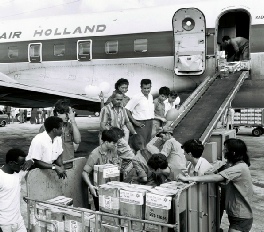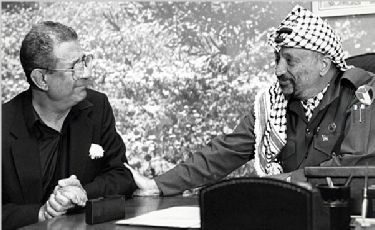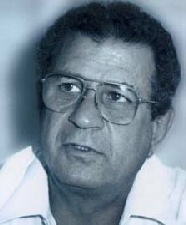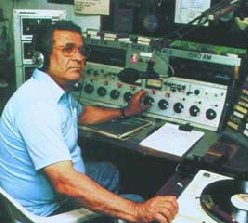Abie Nathan
Abie Nathan was born in Abadan, Persia, on 29 April 1927 and spent his adolescent years in Bombay (now Mumbai), India. He became a pilot in the Royal Air Force in 1944. In 1948 he volunteered as a pilot in the Machal (volunteers in the 1948 Arab-Israeli War) and stayed in Israel thereafter. He worked for El Al airlines and later opened a restaurant in Tel Aviv.
Flight for Peace
Nathan led a party called Nes (Miracle) in the 1965 Knesset elections, but failed to cross the electoral threshold. After the results were published, he declared that he would fly to Egypt in his plane, which he named Shalom 1 (“Peace 1”), carrying a message of peace. He landed in Port Said on 28 February 1966, where he was arrested. He asked to meet Egyptian President Gamal Abdel Nasser to deliver a petition calling for peace between Israel and Egypt. He was refused and deported back to Israel, where he was arrested again for leaving the country by an illegal route.

Meetings with PLO
In 1978, Nathan began his first hunger strike to protest against the construction of Israeli settlements. In the early 1980s, he began meeting officials from the Palestine Liberation Organization (PLO). These meetings were later outlawed by the Knesset. In 1991, Nathan went on another hunger strike for 40 days to protest against that law, which prevented meetings with terrorist organizations. He stopped his hunger strike after President Chaim Herzog intervened. Nathan continued to meet with PLO head Yasser Arafat, however, and on 18 September 1991 he was sentenced to 18 months in prison. Herzog cut 12 months from the sentence, and Nathan was released after serving less than 6 months.

Voice of Peace and humanitarian activities
In 1973, Nathan founded the Voice of Peace radio station. He bought a ship with the help of John Lennon, named it the “Peace Ship”, and sailed it outside Israeli territorial waters. The station broadcast 24 hours a day, mostly English-language programs that mainly included popular music, while promoting Nathan’s political activities. At the same time, he was involved with disaster relief in Cambodia, Bangladesh, Biafra, Colombia, and Ethiopia. In another anti-war protest, he presided over the burial of smashed military toys.
In 1997, Nathan suffered a stroke that left him partially paralyzed. He died in Tel Aviv on 27 August 2008 at age 81. In 2005 he was voted the 44th-greatest Israeli of all time in a poll by the Israeli news website Ynet




